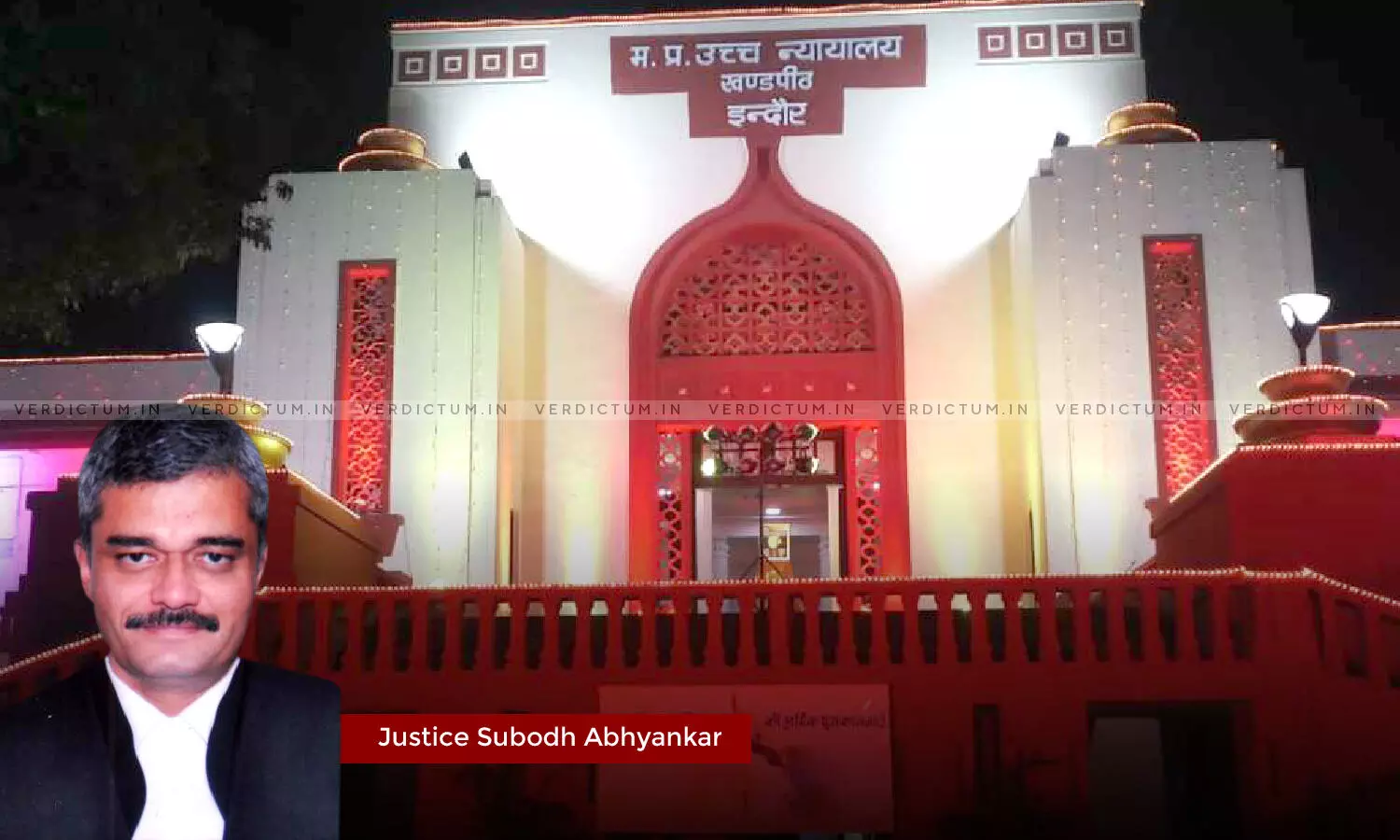
Justice Subodh Abhyankar, Madhya Pradesh High Court
English Version Of NCTE Regulation Will Prevail Over Hindi Being Central Regulation: Madhya Pradesh High Court
 |
|The Madhya Pradesh High Court has held that since the National Council for Teacher Education (Recognition Norms and Procedure)Regulations, 2014 are the Central Government regulations, in case of any discrepancy, the English language version shall prevail over the Hindi language.
The Court was considering a Writ Petition against an order whereby the Respondents have prescribed the eligibility criteria for appointment of Middle School Teacher to a candidate having B.Ed. degree with 50% marks.
The single bench of Justice Subodh Abhyankar observed, "As per Article 348 (1)(b)(iii) of the Constitution of India, the authoritative texts of all orders, rules, Regulations and bye-laws issued under the Constitution or under any law made by Parliament or the Legislature of a State, shall be in the English language. Since the NCTE Regulation, 2014 are the Central Government regulations, in case of any discrepancy, the regulations which are in English language shall prevail."
The Petitioner was represented by Advocate Anand Singh Bahrawat while the Respondent was represented by Advocate Rajwardhan Gawde.
Facts of the Case
The Petitioner had participated in the Middle School Teaching Eligibility Test, 2018 for the post of Middle School Teacher. After the result was declared, it was found that Petitioner did not meet the eligibility criterion only because she did not secure 50% or more marks in her graduation. The Petitioner is also aggrieved by the clarification dated September 17, 2021 wherein it has been opined that for before obtaining the B.Ed. degree, the Candidate must have obtained 50% in graduation.
Counsel for the Petitioner drew the attention of the Court towards National Council for Teacher Education (NCTE) notification dated November 28, 2025, wherein the norms and standards for Bachelor of Education program leading to the Bachelor of Education (B.Ed.) Degree, provide the eligibility of a candidate, that the Candidate should have 50% marks either in bachelor degree and/or master degree in the relevant subject. He also drew the attention of the Court that although the Petitioner obtained bachelor degree i.e. B.A. with 47.50 marks, however, in her master degree i.e., M.A., she obtained 50% marks.
It was submitted that there was no mandatory condition that Petitioner must have 50% marks in her graduation to obtain B.Ed. degree. The Counsel further drew the attention of the Court to the NCTE Regulation, 2014 which provides that a Candidate must have 50% marks either in the bachelor’s degree and/or in the master’s degree in the relevant subject to be eligible for B.Ed. course.
Reasoning By Court
The Court found that there is material discrepancy between the English version as produced by the Petitioner and the Hindi version of the same, as produced by the Respondent and in the Hindi version of Regulation 2014, the master’s degree as provided in English version is missing.
It referred to Article 348 (1)(b)(iii) of the Constitution of India to state that the English version shall prevail over the Hindi version.
"In such circumstances, this Court has no hesitation to hold that on the basis of the Regulation, 2014 (Annexure-R/3), which are in Hindi, respondents have erred in coming to the conclusion that the eligibility to hold B.Ed. degree is graduation with 50% marks, to the exclusion of master’s degree. Whereas, in English version of the same, the eligibility criteria is stated to be bachelor’s degree or master’s degree in relevant subject with 50% marks and thus, apparently the English version shall prevail," the Court observed.
The Petition was accordingly allowed.
Cause Title: Sunita Gupta vs. The State of Madhya Pradesh
Appearances:
Petitioner- Advocate Anand Singh Bahrawat
Respondent- Advocate Rajwardhan Gawde, Advocate Koustubh Pathak
Click here to read/ download Order